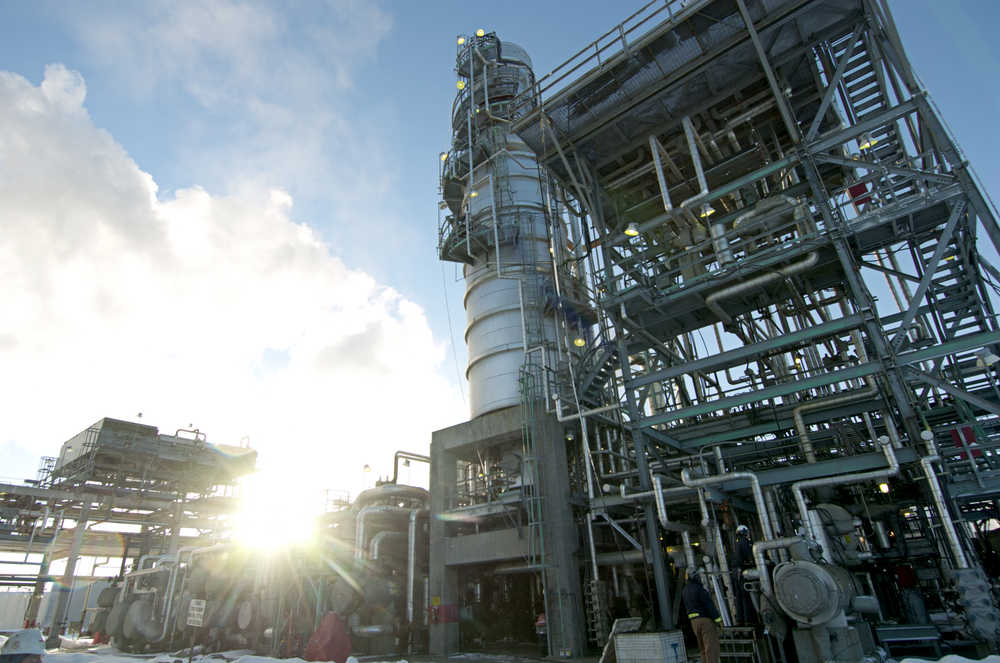The market for Alaska’s refineries is becoming even tougher with reduced demand and increased pressure to compete with imported fuels.
Though the state’s refineries are closer to markets in Alaska, reducing transportation costs, competitive pricing from refiners in Asia and the U.S. West Coast may challenge their businesses, according to a December 2015 report prepared for the Alaska Department of Natural Resources. California-based Econ One Research, Inc., completed the report in response to a request from the Alaska Senate Finance Committee.
The state is down to three commercial refineries after Flint Hills’ North Pole refinery ceased operations in 2014: Petro Star’s refineries in Fairbanks and Valdez and Tesoro’s refinery in Nikiski. Petro Star mostly produces jet fuel while the Tesoro refinery mostly produces gasoline and exports the remaining heavy oil to other markets.
Alaska’s refineries are smaller and simpler than other operations, and in Tesoro’s case, the distance from other markets that insulates it from competition may also make it difficult to export other products. Tesoro exports about 30 percent of each barrel in the form of fuel oil, for which there is no market in Alaska, because the facility in Nikiski is limited by its technology and cannot convert it to lighter fuel oils. The refineries on the West Coast can convert up to 90 percent of a barrel, making it harder for Tesoro to compete, according to the report.
About 70-80 percent of total demand for petroleum products comes from in-state refineries, while the rest comes from the Pacific Northwest or Asia. In-state refiners supply most of the demand in Southcentral and Interior Alaska, according to the report.
Exports from Alaska have been gradually decreasing. Before 2008, Alaska was a net exporter of refined petroleum product; after 2009, the state became a net importer. Imports represented 22 percent of Alaska’s supply in 2013, according to the report.
“Alaska’s refineries supply the majority of demand for refined product in the State, though their contribution has declined over the past decade as imports have claimed an increasingly larger percentage of Alaska’s product demand,” the report states.
Diane Hunt, the special projects and external relations coordinator for the Alaska Division of Oil & Gas, said the report was requested by Sen. Anna MacKinnon, R-Eagle River, in the wake of the Flint Hills refinery closure and had been sent to the senate roughly the same time as the Department of Natural Resources.
The report also shed a little more light on refined petroleum product prices in Alaska. Prices are generally higher than they are in the rest of the U.S., although it is not consistent across products — the biggest difference is seen in gasoline and diesel, while the least difference is seen in jet fuel.
Tesoro is now the only gasoline and diesel producer in Alaska, and concerned about a monopoly, some have called for an investigation into the company’s practices because Alaska’s gas prices are consistently much higher than other states’.
The Alaska Department of Law has looked into the higher cost of gas in Alaska several times over the past few decades. The latest was in 2008, when an investigation concluded that there was no evidence of collusion between the state’s refiners. Price gouging itself is not illegal, but collusion between companies to raise prices is illegal, according to the investigation.
The renewed call came from Sen. Bill Wielechowski, D-Anchorage, who sought to block Tesoro Alaska’s proposed purchase of several Flint Hills assets to expand distribution in the Interior region.
“The already delicately balanced retail gas market in Alaska will be dominated by the company should this sale be approved, keeping further competition from the state and hiking prices for customers,” Wielechowski wrote in a January letter to Alaska Attorney General Craig Richards.
The report puts forth an alternative explanation for higher gas prices in the state. Essentially, the authors suggested large buyers of gasoline secured purchases at prices similar to what the cost of importing would be, called “import parity.”
“While gasoline is generally not imported into the Southcentral or Interior of the State, imports are a potential alternative to local supply,” the report states. “Large buyers of gasoline and diesel, including the State, have been able to purchase gasoline and diesel at prices that generally reflect the cost of importing product … from the Pacific Northwest.”
Reach Elizabeth Earl at elizabeth.earl@peninsulaclarion.com.

